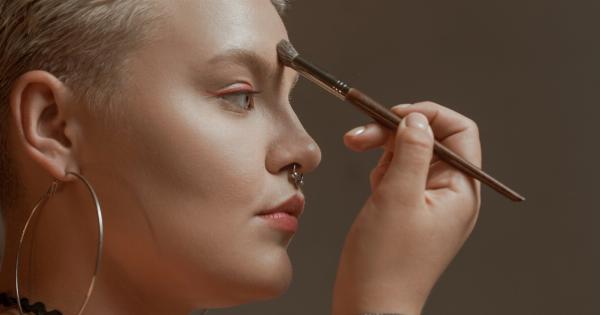Eye blush, also known as conjunctivitis, is a common eye condition that causes inflammation and redness in the conjunctiva – the clear, thin membrane that covers the white part of the eye and lines the inner surface of the eyelid.
It can occur in one or both eyes and is often accompanied by itching, watering, and discharge. In some cases, eye blush can be highly contagious, making it important to know how to prevent and treat this condition effectively.
Causes of Eye Blush
Eye blush can be caused by various factors, including:.
Allergic Conjunctivitis
This type of eye blush occurs as a result of an allergic reaction to substances such as pollen, dust mites, pet dander, or certain medications. People with allergies, such as hay fever or asthma, are more prone to developing allergic conjunctivitis.
Bacterial Conjunctivitis
Bacterial infections, usually caused by bacteria like Staphylococcus or Streptococcus, can lead to eye blush.
This type of conjunctivitis can spread easily from person to person through direct contact or by sharing contaminated items such as towels or makeup.
Viral Conjunctivitis
Viral infections, such as the common cold or the flu, can cause viral conjunctivitis.
This type of eye blush is highly contagious and can be transmitted through respiratory droplets or by touching surfaces that have the virus on them, then touching the eyes.
Preventing Eye Blush
While some causes of eye blush cannot be prevented, there are several measures you can take to reduce the risk:.
1. Practice Good Hygiene
Wash your hands frequently with soap and water, especially before touching your eyes or applying eye drops. Avoid sharing towels, pillowcases, or cosmetics with others to minimize the risk of contamination.
2. Avoid Allergens
If you have known allergies, try to identify and avoid the triggers that cause your symptoms. Keep windows closed during high-pollen seasons, use allergen-proof bedding, and regularly clean your home to reduce dust and pet dander.
3. Be Mindful of Contact Lenses
Follow proper hygiene practices when handling and wearing contact lenses. Clean and disinfect them regularly, and avoid wearing them when your eyes are irritated or infected. Replace disposable lenses as recommended by your eye care professional.
4. Steer Clear of Irritants
Avoid exposing your eyes to irritants such as harsh chemicals, cigarette smoke, or strong fumes. If you work in an environment where these irritants are present, wear protective eyewear to shield your eyes.
Treating Eye Blush
The treatment for eye blush depends on the underlying cause:.
1. Allergic Conjunctivitis
Over-the-counter antihistamine eye drops or oral antihistamines can help alleviate symptoms of allergic conjunctivitis. Applying a cold compress to the eyes may also provide relief from itching and swelling.
If symptoms persist or worsen, consult an ophthalmologist for further evaluation and prescription medications.
2. Bacterial Conjunctivitis
Bacterial conjunctivitis is typically treated with prescription antibiotic eye drops or ointments. It’s important to complete the full course of medication as prescribed by your healthcare provider to effectively clear the infection.
Warm compresses can help reduce discomfort and loosen any crust or debris.
3. Viral Conjunctivitis
Unfortunately, there is no specific treatment for viral conjunctivitis. Symptoms often improve on their own within a week or two. Applying a warm compress and using artificial tears may help relieve the discomfort.
It’s crucial to practice good hygiene to avoid spreading the virus to others.
When to Seek Medical Attention
In some cases, eye blush may require medical attention. It is advisable to see an ophthalmologist if:.
– Your symptoms worsen or persist for more than a week
– You experience severe pain or vision changes
– You have a weakened immune system or underlying health condition
– You suspect a foreign object or chemical got into your eye
Conclusion
Eye blush, or conjunctivitis, is a common eye condition that can be caused by allergies, bacteria, or viruses.
Practicing good hygiene, avoiding irritants, and taking preventive measures can help minimize the risk of developing this irritating condition. Identifying the cause of eye blush is crucial for appropriate treatment. If symptoms persist or worsen, it’s important to seek medical attention for further evaluation and guidance.



























